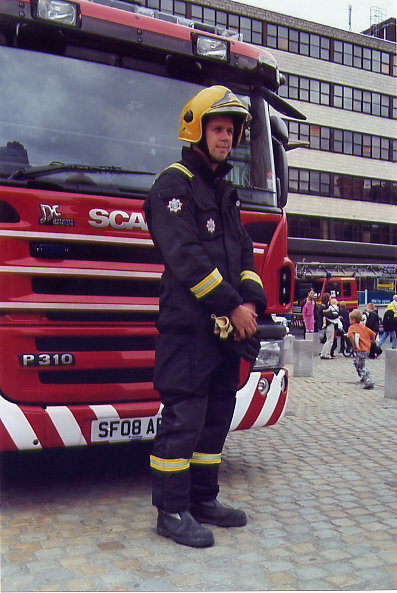
UNIFORMS
Technical Rescue Suit
Lion developed the first Technical
Rescue suit to comply with EN469 Performance Level 1. The new suit combines a
flame retardant ripstop outer fabric, which has high resistance to tearing,
puncture and abrasion and strong colour fastness. The outer face of the fabric
has been treated to repel water and other substances such as petrol and body
fluids. The inclusion of moisture barrier ensures that the garment is waterproof
and breathable and offers a combination of comfort and performance for the
wearer.
Firefighters benefit from a design specification that includes comfort
reinforcement for elbows and shoulders and across the back and knees, as well as
a variety of pockets and loops for the safe carriage of equipment.
The Technical Rescue suit is designed as a multi task ensemble that can be used
for a variety of duties including extrication, USAR, wildland and flood rescue,
high volume pump and rope rescue operations. Certain water rescue, flood and
high volume pump applications may also find the garment beneficial.
The Technical Rescue Garment (TRG) has been designed to
give increased comfort and freedom of movement over the present tunic and
leggings whilst incorporating safety features. It will reduce the build up of
heat and fatigue which can occur with normal fire tunic and leggings. It is a
one piece garment made from Kermel fibre which is flame resistant and has a low
thermal conductivity with a breathable Gortex membrane to allow heat out.
It is black in colour with reflective strips on the arms, legs, back and
shoulders. It has an SFR reflective identification panel on the rear and three
SFR logs (two on the front and one on the right sleeve). The garment has a zip
on the front covered by a Velcro fastening flap. There are reinforcing patches
on the knees and elbows and five pockets (one on each breast, one on each leg
and one on the upper right arm). The upper left arm has provision for storing
pens or pencils.
Following a trial period, the issue of TRG will commence with the three Glasgow
areas in December 2008 followed by the rest of the wholetime personnel then the
Retained Duty System (RDS) and Volunteer personnel.
The TRG will be issued on the basis of two TRGs and one helmet bag to wholetime
and RDS personnel and one TRG to Volunteer personnel. One garment will be put in
the helmet bag and stored under the rear crew cab seat of the appliance with the
other being hung up in the station. On some appliances there is no room under
the rear seats due to charging units/compressors etc and until these appliances
are modified crews will not be required to carry them on the appliance.
The TRG will be worn as an alternative to full firefighting kit at
non-structural or compartment fires at the direction of the Incident Commander
and all of the crew will wear the same type of PPE. The donning of full
firefighting kit or the TRG must take place while the appliance is stationary
before proceeding to an incident. If an appliance is redirected to an incident
and a change from TRG to firefighting kit or vice versa is required then the
appliance must pull into the side of the road to let the crew change kit before
proceeding to the incident.

Technical Rescue Garment 101_5885 18/7/2009